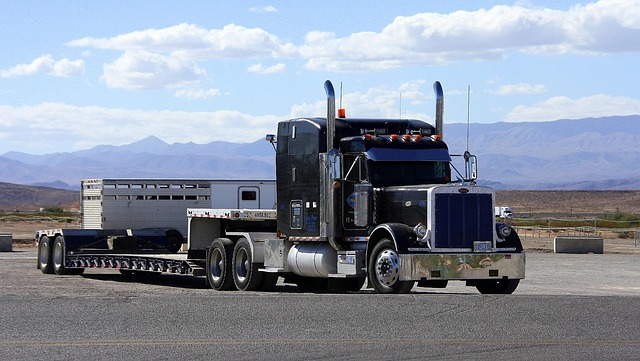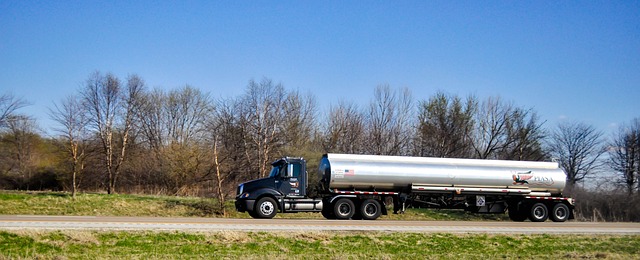Off-duty truck insurance, also known as non-trucking liability coverage, is crucial for risk management in trucking operations. It protects against personal injuries, property damage, and legal fees arising from accidents or damages caused by trucks not in commercial use but still on public roads or property. This coverage ensures financial stability and peace of mind, safeguarding both individuals and businesses from potential risks outside regular work hours, including personal vehicle use for business, driver training, and rest stop incidents. When selecting a policy, consider comprehensive protection against non-commercial liability claims, medical payments, unforeseen events, legal expenses, and specific hazards like cargo damage or loss, while aligning with business needs and local legal requirements.
In today’s bustling transportation landscape, understanding non-trucking liability coverage is crucial for fleet operators. This essential insurance safeguards against risks beyond the typical on-the-road scenarios, protecting your business from liabilities arising during downtime. Off-duty truck insurance isn’t just an added precaution; it’s a game-changer, ensuring comprehensive protection 24/7. This article delves into the intricacies of this coverage, guiding you through essential components and strategies for selecting the right policy for your fleet’s unique needs.
What is Non-Trucking Liability Coverage?

Non-trucking liability coverage, often referred to as off-duty truck insurance, is a crucial component of risk management for trucking operations. It provides protection for truckers and their employers when a truck is not being used for commercial purposes but is still considered a hazard if it’s on public roads or property. This type of coverage is designed to shield individuals and businesses from potential liabilities arising from accidents or damages caused by a truck during non-work hours.
Off-duty truck insurance kicks in when a trucker is no longer engaged in their official duties, ensuring that they and their employer are protected if their vehicle is involved in an incident. It covers various scenarios, including personal injuries, property damage, and legal fees resulting from accidents that occur while the truck is being driven or even parked on someone else’s premises. This coverage is essential for maintaining financial stability and peace of mind, as it can protect against significant claims that may arise from unexpected events.
Why Is Off-Duty Truck Insurance Necessary?

Many businesses and drivers often overlook the significance of off-duty truck insurance, but it plays a crucial role in protecting individuals and companies from potential risks. When a trucker is not on the road, they may still be held liable for accidents or incidents that occur due to their negligence or that of their employees. This coverage bridges the gap between work and personal time, ensuring that drivers are protected even when they’re away from the wheel.
Off-duty insurance is essential as it covers various scenarios like personal vehicles being used for business purposes, driver training sessions, or unexpected situations arising during rest stops. By having this coverage in place, truckers can safeguard their personal assets and limit financial exposure while minimizing risks associated with on-the-job responsibilities extending beyond regular driving duties.
Key Components of a Comprehensive Policy

When considering an off-duty truck insurance policy, several key components ensure comprehensive coverage. Firstly, it should protect against liability claims arising from accidents occurring when the truck is not being used for commercial purposes. This includes scenarios like personal injuries or property damage caused during non-work-related activities. Secondly, medical payments coverage is vital, providing financial assistance for medical expenses incurred by anyone injured in an accident, regardless of who’s at fault.
Additionally, an extensive policy should include unforeseen events like natural disasters or civil unrest. It must also cover legal expenses and court costs in case of lawsuits related to off-duty incidents. Furthermore, considering specific hazards associated with truck operation, such as cargo damage or loss, is essential. These elements collectively contribute to a robust off-duty truck insurance plan, safeguarding against potential risks beyond the typical commercial coverage.
How to Choose the Right Coverage for Your Fleet

When selecting the right non-trucking liability coverage for your fleet, it’s essential to consider both the specific needs of your business and the legal requirements in your area. One crucial aspect is understanding the difference between on-duty and off-duty insurance. Off-duty truck insurance, also known as personal liability coverage, protects individuals and their assets when they’re not operating their vehicles for work purposes. This type of insurance can shield you from claims related to accidents or damages occurring while the truck is parked or being used for personal activities.
To choose the best option, evaluate your fleet’s risk profile. Consider factors such as vehicle usage patterns, driver behavior, and the types of cargo transported. If your trucks are often left unattended in public areas or if drivers frequently use them for personal errands, off-duty insurance becomes even more vital. Compare different policy options, ensuring they offer adequate coverage limits tailored to your fleet’s unique characteristics. This proactive approach will help safeguard your business from potential liabilities and financial risks.
Understanding the need for non-trucking liability coverage is paramount for fleet managers. By securing comprehensive off-duty truck insurance, businesses can protect themselves from unforeseen risks and liabilities that may arise outside of typical trucking operations. With the right policy, including key components like personal injury, property damage, and legal fees, companies can ensure their drivers and assets are safeguarded 24/7. When choosing coverage, consider factors specific to your fleet’s needs, ensuring you’re prepared for any scenario, on or off the road. Invest in this essential protection today to safeguard your business against tomorrow’s challenges.
